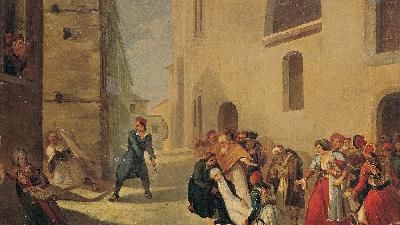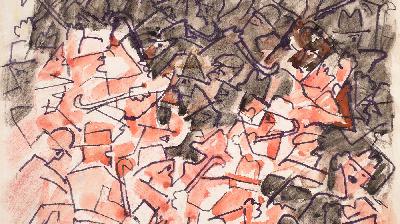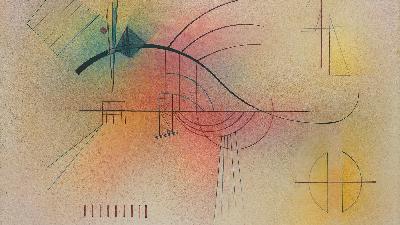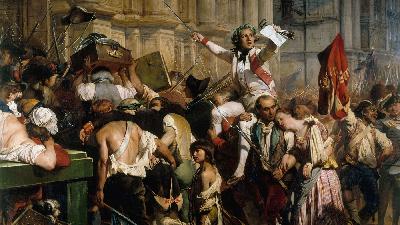Discover Wisdom of Crowds
Wisdom of Crowds

Wisdom of Crowds
Author: Shadi Hamid & Damir Marusic
Subscribed: 241Played: 15,251Subscribe
Share
© Wisdom of Crowds
Description
245 Episodes
Reverse
This week, the great Nils Gilman joined Damir Marusic and Samuel Kimbriel on the pod to unpack the complexities of American foreign policy and its implications for Europe — and beyond. The conversation starts by trying to make sense of Trump’s latest National Security Strategy as a jumping off point, before pivoting into a discussion of populism. Why do some causes, projects — and people — provide meaning while others fall flat? For example, why is Trump’s nationalism more politically effective than calls to global climate action? And is there a better way to create meaning in an increasingly fragmented world?Required Reading:* Nils Gilman, “Climate Leviathan” (Substack).* Nils Gilman, “The Duopoly of Doom” (Substack). This is a public episode. If you'd like to discuss this with other subscribers or get access to bonus episodes, visit wisdomofcrowds.live/subscribe
Damir’s back from Ukraine, still buzzing — and feeling weird about it. He and Christine talk about the thrill and guilt associated with reporting from war zones, the ethical implications of war tourism, and the psychological toll on both journalists and civilians. The conversation then shifts to Trump and a possibly looming war with Venezuela. The Trump administration has cowed many a politician, but the fear seems to be ebbing. But have we gotten over our addiction to the thrill of political populism?Required Reading:* Damir Marusic, “My Night in Dnipro” (WoC).* Christine Emba, “Vibe Shift 2.0” (WoC).* Jason Willick, “There’s No Middle Ground on the Boat Strikes” (Washington Post). This is a public episode. If you'd like to discuss this with other subscribers or get access to bonus episodes, visit wisdomofcrowds.live/subscribe
This is a free preview of a paid episode. To hear more, visit wisdomofcrowds.liveA few years ago, Lea Ypi was scrolling through Facebook when she came across a family photo she had never seen before. Someone had discovered a photograph of Ypi’s grandparents on their honeymoon and posted it on a public Facebook group. Ypi — a philosophy professor from Albania who teaches at the London School of Economics — was dismayed by the comments on the photograph, which ranged from inaccurate to judgmental to just plain mean. Were the husband and wife in this photo Albanian aristocrats? Fascist collaborators? Victims of Communism? Responding to the trolls — as well as, as she puts it, “taking the trolls seriously” — Ypi decided to write a book reconstructing her grandparents’ story. The result is Indignity: A Life Reimagined, a book which asks, among other things, what does human dignity really mean? What makes this book even more interesting is that Ypi’s grandparents lived through some of the most dramatic moments in the twentieth century: the fall of the Ottoman Empire, the rise of Fascism, and World War II. Ypi joins Damir and Santiago, who want to understand Ypi’s own philosophical priors. Damir wants to know where moral responsibility ends and and the structural forces of history begin. Santiago asks whether dignity, as a concept, has a metaphysical foundation. The result is a wide-ranging conversation that covers history, literature, philosophy and more.In our bonus section for paid subscribers, Santiago asks Ypi about the difference between Fascist and Communist decision-making; Damir presses Ypi on the question of free will; Ypi discusses her two-point prescription for a better Europe; Santiago asks Ypi whether it’s hard to write about one’s country in a foreign language; and finally, Ypi’s hot take on Zohran Mamdani.Required Reading:* Lea Ypi, Indignity: A Life Reimagined (Amazon). * Lea Ypi, Free: Coming of Age at the End of History (Amazon). * Immanuel Kant, Groundwork for the Metaphysics of Morals (Amazon). * Friedrich Schiller, On the Aesthetic Education of Man (Amazon). Free preview video:Full video for paid subscribers below:
After Friday’s meeting between Donald Trump and Zohran Mamdani, everyone is asking: who is Zohran Mamdani really? What motivates him: is it progressive cultural issues, or economic populism? Is he woke, or a pragmatist? He won the mayor’s seat in New York City with just over fifty percent of the vote, when even the leaders of his own party refused to endorse him. What makes this guy tick?Today’s guest is one of the best people, apart from Mamdani himself, to answer these questions. Ross Barkan is a political commentator and novelist who, in a previous life, ran for office in New York City. His campaign was run by none other than Zohran Mamdani. So he has a first-hand knowledge about Mamdani’s thinking about politics and governance. He is also a dyed-in-the-wool New Yorker who has lived in the city his entire life, and has intimate acquaintances with the nuances of local politics and the different ethnic communities which make up New York City. Shadi Hamid asks Ross about how Mamdani came to have such a mass appeal, even though he calls himself a democratic socialist and openly supports Palestine. Ross agrees that Mamdani’s positions on several hot-button issues herald a big transformation in the Democratic Party.Damir Marusic takes a more skeptical position. Do the foreign policy positions of a New York City mayor really matter, or is it all symbolic politics? What Damir is impressed by is Mamdani’s talent for politics: his visit to the White House shows that he is a pragmatist, and that he just might have what it takes to do to the Dems what Trump did to the GOP.Since interest in Mamdani is peaking right now, we are making this conversation free for all subscribers. The conversation covers a lot of the nitty-gritty of practical politics. Is it true that keeping Jessica Tisch as Police Commissioner is Mamdani’s way of offering an olive branch to the Democratic establishment? What does the appointment of populist anti-monopolist Lina Khan into Mamdani’s transition team mean on a political level? And was it a good idea for Mamdani to visit Trump? Finally, Ross makes a case for Mamdani: “Even if you’re not a socialist or progressive, he is a young mayor who is willing to take risks and who is willing to hire young people into his administration who think outside the box.”Required Reading:* Ross Barkan’s interview with Zohran Mamdani (New Statesman). * Eric Adams’ “New York City is the X of America” supercut (YouTube). * Ross’ political commentary in New York magazine. * Ross’ columns in the New Statesman.* Ross Barkan, Fascism or Genocide: How a Decade of Political Disorder Broke American Politics (Amazon). * Ross Barkan, Glass Century: A Novel (Amazon). * “Lina Khan’s populist plan for New York: Cheaper hot dogs (and other things)” (Semafor). * “Defund the police no more: Zohran Mamdani seals coup with deal to keep Jessica Tisch as NYPD Commissioner” (Fortune). * “Mamdani issues broad public apology to NYPD” (Politico). Full video:Wisdom of Crowds is a platform challenging premises and understanding first principles on politics and culture. Join us! This is a public episode. If you'd like to discuss this with other subscribers or get access to bonus episodes, visit wisdomofcrowds.live/subscribe
This week’s episode is a live recording of Wisdom of Crowds, where we celebrated a very special occasion: the publication of Shadi Hamid’s new book, The Case for American Power. The book is a soul-searching study about American power as a force for good in the world, and it combines memoir and foreign policy analysis. Shadi’s thesis is that if we want to make the world “more just and more moral, more democratic and more respectful of human rights,” then backing the United States is both the “last best hope and the least-bad option.”Joining Shadi Hamid and Damir Marusic is special guest Matt Duss, former foreign policy advisor to Bernie Sanders, executive vice president of the Center for International Policy, and co-host of the Undiplomatic Podcast. “I am certainly not against the idea of American power,” says Matt. But his question is: “Which America?” Duss is less optimistic that US power can be put to good use because, he says, we are currently having a national debate about “what is the nature of the American project.” It’s unclear how that debate will end.Nevertheless, Shadi argues, American democracy, however imperfect, is still superior to the regimes in the other global hegemons, Russia and China. We should not fear our own home — oikophobia is a real issue, Shadi says, using the term for “fear of one’s home,” the opposite of xenophobia. Duss partially agrees, but says that being a democracy does not necessarily imbue American foreign policy with moral authority. “International law does that.” The topic of international law prompts Damir to steer the conversation towards the topic of Gaza. Does American collaboration with Israeli war crimes disprove Shadi’s thesis? Or does it paradoxically strengthen the argument that the world needs morally-guided American power? At this point, Shadi utters one of the best lines of the night: “To be seen as hypocritical is the cost of trying to being better than you actually are.”We are making this episode completely free for all subscribers, including the Q and A section, which covers topics like: hypocrisy in foreign policy; why working with China is preferable to the US for some nations; how Gaza will change the Democratic Party; the crisis in the MAGA coalition; and more! Required Reading and Listening:* Shadi Hamid, The Case for American Power (Amazon).* Shadi, “A Genocide is Happening in Gaza. We Should Say So” (Washington Post).* Shadi, “Everyone says the Libya intervention was a failure. They’re wrong.” (Vox). * Our 2024 podcast with Matt Duss (WoC). * Rod Dreher, “What I Saw and Heard in Washington” (Substack). * Roger Scruton, “Oikophobia” (Journal of Education). Wisdom of Crowds is a platform challenging premises and understanding first principles on politics and culture. Join us! This is a public episode. If you'd like to discuss this with other subscribers or get access to bonus episodes, visit wisdomofcrowds.live/subscribe
With Shadi out promoting his new book, Damir sat down with WoC friend Jamie Kirchick to debate the influence of media figures like Tucker Carlson and Nick Fuentes on conservatism on America. Anti-semitism may be the oldest hatred, something different feels afoot today. Generational shifts in attitudes on Israel, partly fueled by the Gaza war, have given unscrupulous charlatans an opening into the mainstream. But why are mainstream conservative institutions not fighting back? And what does this say about the future of the Republican Party once Donald Trump eventually leaves the scene?Required Reading and listening:* Tucker Carlson interviews Nick Fuentes (YouTube).* Ben Shapiro’s Nick Fuentes Supercut (YouTube).* “Visa Applicants Don’t Have First Amendment Rights,” by Jamie Kirchick (Politico).Wisdom of Crowds is a platform challenging premises and understanding first principles on politics and culture. Join us! This is a public episode. If you'd like to discuss this with other subscribers or get access to bonus episodes, visit wisdomofcrowds.live/subscribe
This is a free preview of a paid episode. To hear more, visit wisdomofcrowds.liveAre human beings by nature suspicious of each other? Or is harmonious communal life our default mode? The answer to this question has implications for politics. Today’s episode is a live discussion about just this question, recorded last summer at the Aspen Ideas Festival. The guest is philosopher Tamar Gendler of Yale University, whose work deals with …
This is a free preview of a paid episode. To hear more, visit wisdomofcrowds.liveWe need to get better at asking for help.So argues author Leah Libresco Sargeant in her new book, The Dignity of Dependence: A Feminist Manifesto. The core thesis of the book is that “women’s equality with men doesn’t depend on their interchangeability with men.” But the book also has many insights that apply to men as well as women. All of us need to get better at asking for help. Hosting this episode are Shadi Hamid and Christine Emba, who each bring their political perspectives to bear upon the conversation. Christine asks Leah whether the physical differences between the sexes affect the scope of political equality. Shadi asks whether Leah’s practical proposals, which are rooted in her religious convictions, are feasible in a contemporary society formed by modern ideas. The conversation also touches upon the limits of personal autonomy, as well as the recent discussions about the so-called “feminization” of the workplace. In our bonus section for paid subscribers, Leah discusses her conversion to Catholicism from atheism; whether or not religion factors into her thinking about the morality of abortion; different strategies for asking for help; why it’s better to ask for help first before you offer help to someone else; and more!Required Reading:* Leah Libresco Sargeant, The Dignity of Dependence: A Feminist Manifesto (Amazon).* Leah Libresco Sargeant’s Substack, Other Feminisms.* Leah Libresco Sargeant, Building the Benedict Option: A Guide to Gathering Two or Three Together in His Name (Amazon).* Christine, Rethinking Sex: A Provocation (Amazon). * Shadi and Kristina Tabor Saccone, “Provocation: Am I Unhappy Because I’m Unmarried?” (WoC). * Helen Andrews, “The Great Feminization” (Compact). Free preview video:Full video for paid subscribers below:
This is a free preview of a paid episode. To hear more, visit wisdomofcrowds.live“This is one of the greatest historical eras mankind will ever see.”So says Tyler Cowen, economics professor at George Mason University, renowned author and chairman at the Mercatus Center, a think tank. He is also a writer, and famous podcaster whose books, like The Great Stagnation and Average is Over, which for over a decade have helped readers under…
Yesterday, the philosopher Michael Sandel won this year’s prestigious Berggruen Prize for Philosophy and Culture. The million-dollar prize is a lifetime-achievement award given to an individual “whose ideas have profoundly shaped human self-understanding and advancement.” We were lucky to have Professor Sandel on our podcast last summer, along with his son, fellow-philosopher Adam Sandel, and Wisdom of Crowds’ resident philosopher, Samuel Kimbriel. To celebrate Professor Sandel’s award, we are re-releasing the episode. Enjoy!— Santiago Ramos, executive editorA special treat from the Aspen Ideas Festival: a panel discussion about American community and politics, featuring a father–son philosophical duo.Michael J. Sandel is a professor at Harvard University, where he teaches political philosophy. His famous “Justice” course has been viewed by tens of millions worldwide. His son, Adam Sandel, is a philosopher, award-winning teacher, and holder of the Guinness World Record for most pull-ups in one minute. Together with Samuel Kimbriel, Wisdom of Crowds’ in-house philosopher, they discuss community, democracy, the evolving nature of justice, the importance of constructive visions for community, and the role of music in bridging divides. Tune in for a substantive and inspiring reflection on the meaning of democracy.Required Reading:* Adam Sandel, Happiness In Action: A Philosopher’s Guide to the Good Life (Amazon). * Michael Sandel, The Tyranny of Merit: Can We Find the Common Good? (Amazon).* Samuel Kimbriel, Friendship as Sacred Knowing: Overcoming Isolation (Amazon). Wisdom of Crowds is a platform challenging premises and understanding first principles on politics and culture. Join us! This is a public episode. If you'd like to discuss this with other subscribers or get access to bonus episodes, visit wisdomofcrowds.live/subscribe
This week we have a very special guest: Robert Malley, a veteran American diplomat and Middle East expert. From advising President Clinton at Camp David to serving as President Obama’s top White House official for the Middle East and then as Biden’s Special Envoy for Iran, Malley has spent decades at the heart of U.S. diplomacy. Today he joins Shadi Hamid and Damir Marusic to discuss his new book, Tomorrow Is Yesterday: Life, Death, and the Pursuit of Peace in Israel/Palestine.Malley begins the discussion with an arresting suggestion: that the war in Gaza has brought Palestinians and Israelis back to where they were before 1948 — before the twentieth century, even. Looking back at the Oslo Peace Process, Malley argues that liberal peacemaking was too dismissive of those who are motivated by history or faith. Yet it is precisely those attachments — Zionism’s pull toward Eretz Yisrael, the Palestinian longing for the right of return — that define the conflict’s soul. Any peace plan has to take these deep yearnings into account from the get-go.Shadi insists that resilience itself has become the Palestinians’ act of resistance. Their struggle, refracted now through moral discourse and digital mediation, animates the conscience of a younger America. He predicts that one day this generation will alter U.S. policy in a way that may make peace truly possible — by putting significant pressure on Israel to make concessions it has rarely been willing to make. Malley wonders how one persuades a people that their yearning is wrong; Shadi replies that after genocide, there is no moral equivalency between the competing narratives. And Damir reminds everyone that peace without victory is only surrender.Given its timeliness — Israel and Hamas are currently deciding whether to adopt Trump’s Gaza peace plan — we are making the episode free for all subscribers. The tail end of the episode has several golden moments: Robert discusses the details of Trump’s peace plan; Shadi asks Robert why he thinks that October 7 was “Palestinian to the core”; Robert explains his support for the Abraham Accords; the real problem with the blockade and sanctions on Gaza; Shadi asks what Obama really believes about the conflict; “Obama is a speech that has been cut mid-sentence”; why Obama’s presidency hurts Shadi more than Trump’s; “Something fundamentally rotten about the foreign policy establishment despite their pretense to morality?”; some Bernie nostalgia; and more!Required Reading:* Robert Malley and Hussein Agha, Tomorrow Is Yesterday: Life, Death, and the Pursuit of Peace in Israel/Palestine (Amazon). * Elliott Abrams, “There Never Will Be a Palestinian State. So What’s Next?” (Mosaic). * Damir, “Hamas’ Bid for Revolutionary Legitimacy” (WoC). * Shadi, “A Genocide is Happening in Gaza. We Should Say So” (Washington Post). Full video below:Wisdom of Crowds is a platform challenging premises and understanding first principles on politics and culture. Join us! This is a public episode. If you'd like to discuss this with other subscribers or get access to bonus episodes, visit wisdomofcrowds.live/subscribe
This is a free preview of a paid episode. To hear more, visit wisdomofcrowds.liveLast week, Wisdom of Crowds philosopher-in-residence Samuel Kimbriel wrote an essay about the political use of Christianity within MAGA, contrasting the sincerity of Erika Kirk’s piety with the propagandistic use of the Lord’s Prayer in a recent military recruitment video. Shadi Hamid reflected on Samuel’s piece and more, writing a column about it for the Washington Post. Today, we bring both men together to discuss the central questions of both articles: do Christianity and politics mix?Damir Marusic adds his own take on the debate, trying to dissuade both Samuel and Shadi from thinking that there is a “true” Christianity that can be saved from the corrupting influence of political power. Shadi says that he does not care whether there is a true version of Christianity: what he wants is a healthy, forgiveness-centered version of Christianity to triumph politically, that is what is good for America. Meanwhile, Samuel talks about the inherent tension between living a radical faith while also being politically successful.In our bonus section for paid subscribers, Shadi discusses the Islamic idea of politics as a “site of imperfection”; Samuel explains why he is “especially attracted to acts that happen under conditions of scarcity”; Damir explains why he would not want any of his Christian friends to become powerful politicians; the three discuss the difference between the politics of conviction and the politics of responsibility; and more!Reading and Watching:* Shadi, “Two Versions of Christianity Battle for America’s Soul” (Washington Post).* Sam, “What Christianity Isn’t” (WoC).* Military recruitment video w/Our Father (X).* Erika Kirk speech at Charlie Kirk memorial (YouTube).* Matthew Rose, A World After Liberalism: Philosophers of the Radical Right (Amazon).* Max Weber, “Politics As A Vocation” (Internet Archive).* Ezra Klein interviews Ta Nehisi Coates (New York Times).Free preview video:Full video for paid subscribers below:
Today we have a return guest: Jordan Castro. Jordan is a writer and the deputy director of the Cluny Project, a think tank of sorts for cultural entrepreneurs. The last time Jordan appeared on Wisdom of Crowds, we discussed his first novel, The Novelist. Now Jordan has a second book, Muscle Man, about a disgruntled middle-aged academic who tries to find an answer to his frustrations in weightlifting and strength training. It is a hilarious satire of our time, a novel that speaks to our political moment without being political per se.Shadi Hamid and Santiago Ramos ask Jordan about the themes of his book; frustrated masculinity; how to get out of your head; whether weightlifting is a good spiritual practice; and whether novels can be political. Shadi wonders whether Santiago and Jordan are too negative about modern life. Santiago responds that Jordan’s novel is not about modern man as an abstraction, but about contemporary life, as a concrete challenge. Jordan starts a long disquisition about the works of Søren Kierkegaard.In our bonus section for paid subscribers, you get the full Jordan Castro take on Kierkegaard; the three men talk about love; Jordan explains marriage; is Sabrina Carpenter wise about love? Santiago and Jordan talk about their respective wedding songs; Shadi wants to know why the Muscle Man main character doesn’t have a girlfriend; and moreFull video:Required Reading and Viewing:* Jordan Castro, Muscle Man (Amazon).* Jordan Castro, The Novelist (Amazon).* Cluny Journal, the Substack of the Cluny Project.* Our previous episode with Jordan (WoC).* Santiago’s review of Jordan’s first novel (Commonweal).* Shadi’s interview with Jordan (Washington Post)* On Nietzschean ideology, see: Mana Afsari, “Last Boys at the End of History” (The Point).* The hockey stick graph (Marketplace.org).* Fyodor Dostoyevsky, Notes from Underground (Amazon).* Søren Kierkegaard, The Present Age (Amazon).* Søren Kierkegaard, Either/Or (Amazon).* Søren Kierkegaard, Fear and Trembling (Amazon).* Søren Kierkegaard, Works of Love (Amazon).* Mikhail Bakhtin, “Epic and the Novel.”* Knut Hamsun, Hunger (Amazon).* King of Comedy (IMDb).* Taxi Driver (IMDb).Wisdom of Crowds is a platform challenging premises and understanding first principles on politics and culture. Join us! This is a public episode. If you'd like to discuss this with other subscribers or get access to bonus episodes, visit wisdomofcrowds.live/subscribe
This is a free preview of a paid episode. To hear more, visit wisdomofcrowds.liveToday’s guest is Geoff Shullenberger, the managing editor of Compact and a writer whose articles and reviews have appeared in American Affairs, The Chronicle of Higher Education, The New Atlantis, UnHerd, and more. Last week, after the assassination of Charlie Kirk, Geoff wrote an incisive piece titled, “The Return of the Assassin.” In it, he observes that the nature of violence has shifted in recent years, away from the mass shooting and towards the targeted political assassination. Why this is the case, and what it bodes for the future, is the subject of this week’s podcast.The conversation provides historical perspective by comparing contemporary political (or quasi-political) violence to radical groups from the 1960s and 1970s like the Baader Meinhof group, the Red Brigades, the Black Panthers, and figures like Huey Newton and Eldridge Cleaver. Shadi Hamid distinguishes between left-wing violence (utopian, seeking new systems) and right-wing violence (preservationist, maintaining hierarchies). Geoff challenges this framework, noting that recent shooter profiles don’t fit neatly into these categories. Damir Marusic notes that human beings always want events to “mean” something, but it may very well be that all this violence is essentially senseless.In our bonus section for paid subscribers, the guys discusses Martin Scorsese’s Taxi Driver; Geoff explains why he doesn’t think we are on the brink of civil war; was the Charlie Kirk assassination an “honor killing”?; was January 6 a “mobilization”?; what Trump does next; were we living under a liberal dictatorship in 2020?; Damir on “the rotten Democratic Party”; Shadi says: “Nobody is blameless, but that doesn’t mean everyone is equally to blame”; and more!Required Reading and Viewing:* Geoff Shullenberger, “The Return of the Assassin" (Compact).* Geoff Shullenberger, “Popular Justice” (The Point).* Tom Wolfe, “Radical Chic” (New York).* Michel Foucault, Discipline and Punish (Amazon).* Martin Scorsese, Taxi Driver (IMDB). * Oliver Stone, JFK (IMDB).* Oliver Stone, Talk Radio (IMDB).* Eric Bogosian, Talk Radio (Amazon).* La Verkin City, Utah, United Nations-Free Zone Ordinance.* Punk rock picture of Oswald and Ruby.Free Preview Video:Full video for paid subscribers below:
Our episode this week is more on the serious and somber side. Shadi Hamid and Damir Marusic discuss the assassination of Charlie Kirk and speculate about its consequences. What are we learning about America and American politics in the wake of that horrible shooting? Is America heading toward low-grade civil war—like the Years of Lead in Italy during the 1970s? Does the Right control the culture and the media—and will it use this event to expand its political power? Does the Left have a problem with violence? Do we even have an opposition party?In light of how Trump has reacted to the Kirk shooting, Shadi begins with a mea culpa for having criticized the Left for its illiberalism in the past: it looks like the Right is worse. But Damir disagrees: what we are seeing now is an “inversion of what we had a few years ago,” though perhaps a bit worse. Shadi thinks out loud: “you’d think that having power would make you more magnanimous,” while instead, both sides “when they’re winning, they act like they’re losing.”So what is the prognosis? Shadi thinks the Right is an existential threat to American democracy. Damir says, “we are a turd spiraling down a toilet,” and we are currently on the Right side of the spiral — but “the spiral began before.”We are making this episode free for all subscribers — the issues discussed touch at the core of our mission at Wisdom of Crowds. As Shadi put it, Charlie Kirk, however different his ideology was from our own, was “someone I could’ve known, who could’ve been at my house.” The episode concludes with discussions of possible civil war, whether political categories make sense with regard to assassinations, and why the Years of Lead might be an apt analogy for what is developing in America right now.Required Reading and Viewing:* Donald Trump’s appearance on Fox & Friends (YouTube). * The Years of Lead in Italy (Wikipedia). * Shadi, “My Faith in America is Being Sorely Tested” (WoC). * Ukrainian woman stabbed (ABC). * Shadi, “Think you’re above conspiracy theories? Don’t be so sure” (Washington Post). Full video below:Wisdom of Crowds is a platform challenging premises and understanding first principles on politics and culture. Join us! This is a public episode. If you'd like to discuss this with other subscribers or get access to bonus episodes, visit wisdomofcrowds.live/subscribe
The Lyceum Movement is a nationwide grassroots organization that aims to build a healthier public discourse by bringing diverse groups of people together to investigate first principles. Every August, Lyceum hosts a big event in Des Moines: the Tallgrass Ideas Festival. And for the last three years, Wisdom of Crowds has been there, hosting a live taping of our podcast.This year, the Festival’s theme was trust. We hosted an episode about trust and technology, a topic on everybody’s mind. Our two guests were Daniel Corrigan, a philosophy professor at Iowa State University who focuses on the theory and practice of rights, and August Lamm, an artist, activist and writer who has distinguished herself by leading an active creative life completely off the grid — in New York, to boot. This was an engaging conversation about AI, work, time and happiness. I think it’s one of our best this year.Santiago Ramos starts the conversation with a quote from the late Henry Kissinger, who claimed that trusting AI requires more blind faith than the scientific method. Are we becoming less modern when we trust the “mechanical oracle” of AI? What does it mean to trust AI? Daniel, in his philosophical way, clarifies the terms. We can only trust people, he says, not machines. Machines can be reliable, but not trustworthy. So the question is: do we trust the companies that make the machines? August, for her part, says that we need to go back to first principles. Why do we need these machines in the first place? Why do we need social media? Why do we need AI? Why do we need everything to be so fast?The episode concludes with some interesting questions from the audience, about AI and natural resources; the difficulty discerning reality from fantasy; and how we can make software better. It’s well worth your time.Required Reading:* The Kissinger quote comes from this article.* Palantir’s one-pound contract with the British NHS.* Lyceum Movement. * Tallgrass Festival of Ideas.* Daniel Corrigan webpage on Philpapers.* August Lamm’s homepage.* Santiago Ramos, “The People v. the Oracle” (WoC). Wisdom of Crowds is a platform challenging premises and understanding first principles on politics and culture. Join us! This is a public episode. If you'd like to discuss this with other subscribers or get access to bonus episodes, visit wisdomofcrowds.live/subscribe
A special treat from the Aspen Ideas Festival: a panel discussion about American community and politics, featuring a father–son philosophical duo.Michael J. Sandel is a professor at Harvard University, where he teaches political philosophy. His famous “Justice” course has been viewed by tens of millions worldwide. His son, Adam Sandel, is a philosopher, award-winning teacher, and holder of the Guinness World Record for most pull-ups in one minute. Together with Samuel Kimbriel, Wisdom of Crowds’ in-house philosopher, they discuss community, democracy, the evolving nature of justice, the importance of constructive visions for community, and the role of music in bridging divides. Tune in for a substantive and inspiring reflection on the meaning of democracy.Required Reading:* Adam Sandel, Happiness In Action: A Philosopher’s Guide to the Good Life (Amazon). * Michael Sandel, The Tyranny of Merit: Can We Find the Common Good? (Amazon).* Samuel Kimbriel, Friendship as Sacred Knowing: Overcoming Isolation (Amazon). Wisdom of Crowds is a platform challenging premises and understanding first principles on politics and culture. Join us! This is a public episode. If you'd like to discuss this with other subscribers or get access to bonus episodes, visit wisdomofcrowds.live/subscribe
This is a free preview of a paid episode. To hear more, visit wisdomofcrowds.liveAmerican Primeval on Netflix. The Secret Lives of Mormon Wives on Hulu. Ballerina Farm on Instagram. American culture is living through a Mormon moment. It is a sign that the Church of Jesus Christ of Latter-day Saints is growing in confidence and strength. But what are the drawbacks to becoming mainstream? What are the trade-offs involved in American liberalism? What can those of us who are not part of the LDS Church learn from the Mormon moment?Here to discuss this and more is Zachary Davis, the Executive Director of Faith Matters and Editor of the LDS magazine Wayfare. Zach is also a veteran podcaster, having hosted the podcasts Ministry of Ideas and Writ Large.The discussion begins with Santiago Ramos asking Zach for an account of LDS history, contrasting it with its depiction in American Primeval, the Netflix show. Christine Emba then asks about the various pop culture phenomena that have emerged within LDS culture. The conversation covers recent LDS history, as well as reflections on the costs of assimilation and how American liberalism can benefit from the growth of the LDS Church.In our bonus section for paid subscribers, Christina and Zach discuss Ballerina Farm; Zach explains LDS attitudes toward Trump; Santiago asks Zach whether he has hope for the future of America; Zach explains that Mormons believe the American Constitution is a sacred document; why Mormons love Muslims; rethinking first (theological) principles; and more!Required Reading:* Wayfare magazine.* McCay Coppins, Romney: A Reckoning (Amazon).* Jonathan Rausch, Cross Purposes: Christianity's Broken Bargain with Democracy (Amazon).* Jon Krakauer, Under the Banner of Heaven (Amazon). * Public polling re: LDS (Pew Research).* American Primeval (Netflix).* Ballerina Farm (official website).* Secret Lives of Mormon Wives (Hulu).* The Soloists (Substack).* Romney’s 47 percent comment (MSNBC).* Utah rankings (U.S. News and World Report).Free preview video:Full video for paid subscribers below:
President Donald Trump federalized DC law enforcement this week, raising all sorts of questions — about democracy, authoritarianism, sovereignty and legitimacy — that are natural fits for us to discuss here at Wisdom of Crowds. Yes, Trump’s use of emergency powers to justify the takeover is constitutional, even if he is stretching the concept of what counts as an emergency. But Damir Marusic feels like things took a much darker turn this week, and nobody seems to have noticed. Weren’t people in the streets at the mere suggestion that Trump would deploy troops to American cities four years ago — when doing so was arguably much more justified? Shadi Hamid thinks many Democrats are just too disgusted by their own party to be able to muster a response. What’s the point? Anyway, like most Trump stuff, this is all just theater — Potemkin policing. Our democracy is still fine, isn’t it?…isn’t it?Required Reading:* “Trump has brilliantly orchestrated a legal coup,” by Kathleen Parker (WaPo).* “Donald Trump, DC Police Commissioner,” b y the Editorial Board (WSJ). This is a public episode. If you'd like to discuss this with other subscribers or get access to bonus episodes, visit wisdomofcrowds.live/subscribe
This is a free preview of a paid episode. To hear more, visit wisdomofcrowds.live“ ‘Barbarism’ is a word that keeps coming to my lips lately,” writes Damir Marusic in a brilliant new article this week. Barbarism seems to be the only real word that describes what comes after the liberal international order. But Damir isn’t pointing to the supposed barbarism of our enemies. His article points to the ways that we in the West — and in the United States — are becoming coarser and more egocentric. Like the poet said, barbarism begins at home. Shadi Hamid interrogates Damir about his piece in Socratic fashion. Is Damir maybe making a moral equivalence between the Trumpist Right and the hapless Left? While it’s true that the Left isn’t very effective, it can hardly be said to be barbaric. In the course of his answer, Damir discusses Alligator Alcatraz as the symbol of new American barbarism: kind of silly, but also, openly cruel. For Damir, barbarism isn’t just Nazism; it is the strong turn toward selfishness and narcissism that has taken place since the middle of the twentieth century. And he has a theory of why the turn took place: secularization and the death of God. On this point, Shadi agrees, but he still has questions. Is it political structures or innate nature that make us turn toward evil? If it is the former, how can politics help in this moment to keep us from becoming truly barbaric? It is a timely and intense conversation.In our bonus section for paid subscribers, Damir and Shadi discuss why “war is a force that gives us meaning”; Shadi compares violence to orgasms; Damir’s Calvinist sympathies make an appearance; Damir opposes “vulgar Nietzscheanism” with a “moral law” forged out of our “broken humanity”; Shadi wonders if Damir has finally become a moralist; can morality survive Pax Americana?; Gaza and barbarism; Christopher Hitchens and faith; the origin of the phrase, “Beyond the pale”; and more!Required Reading:* Damir, “Back to Barbarism” (WoC).* Thérèse Delpech, Savage Century: Back to Barbarism (Amazon). * Curzio Malaparte, Kaputt (Amazon). * Friedrich Nietzsche, “The Parable of the Madman” (Fordham University). Free preview video:




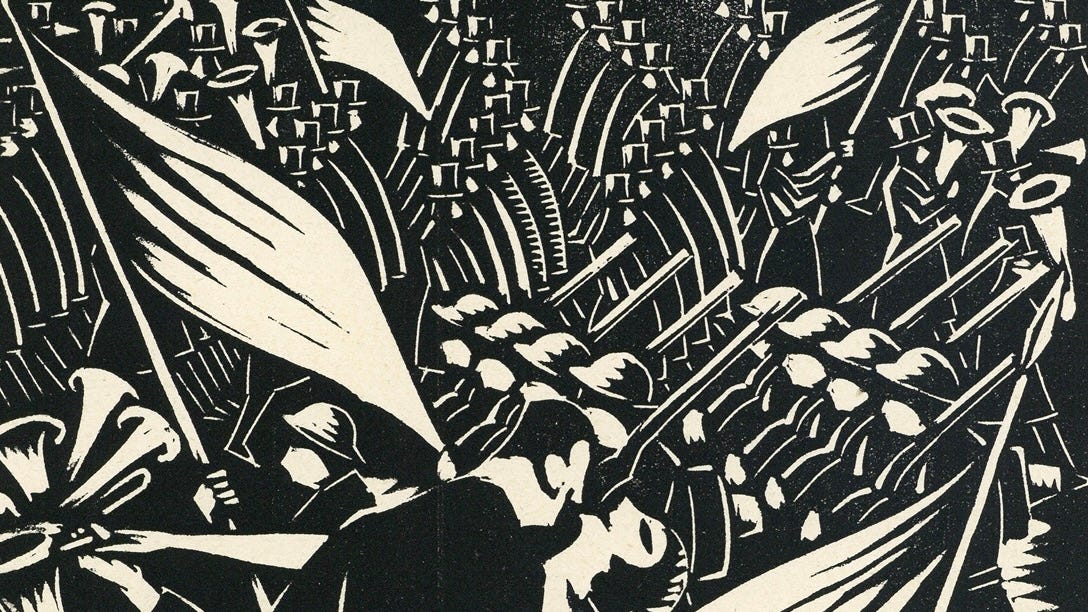
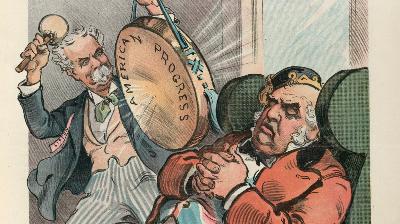
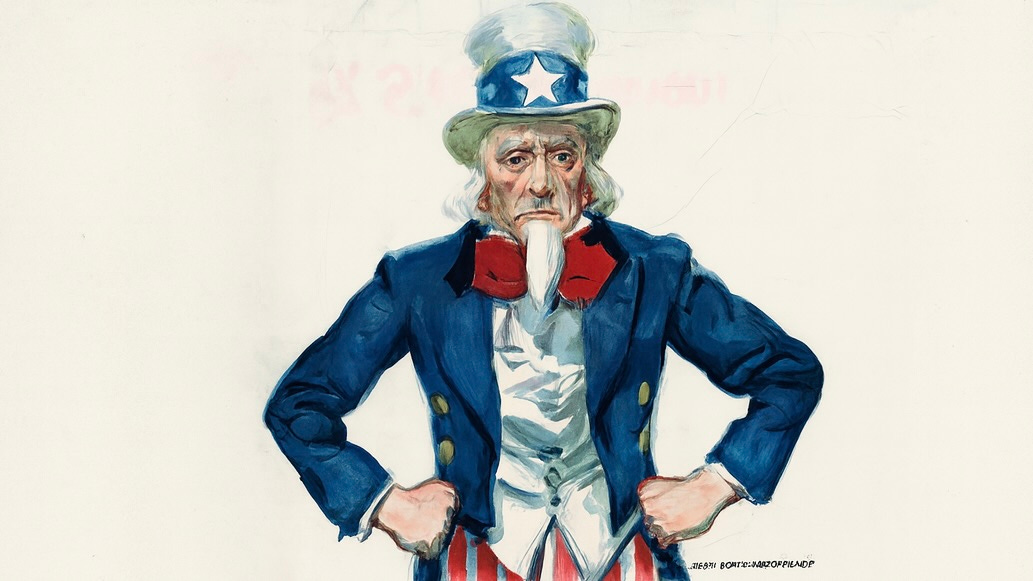

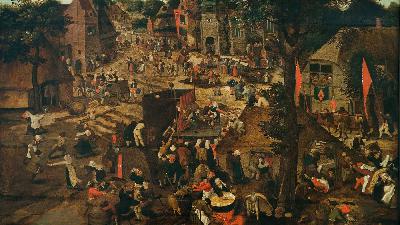

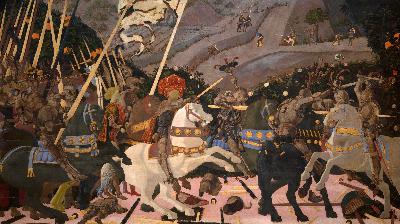
![[REUPPED] Community, Freedom and the Polis [REUPPED] Community, Freedom and the Polis](https://s3.castbox.fm/55/65/95/78ae86b78a5b41eccf2226319fe10290b7_scaled_v1_400.jpg)

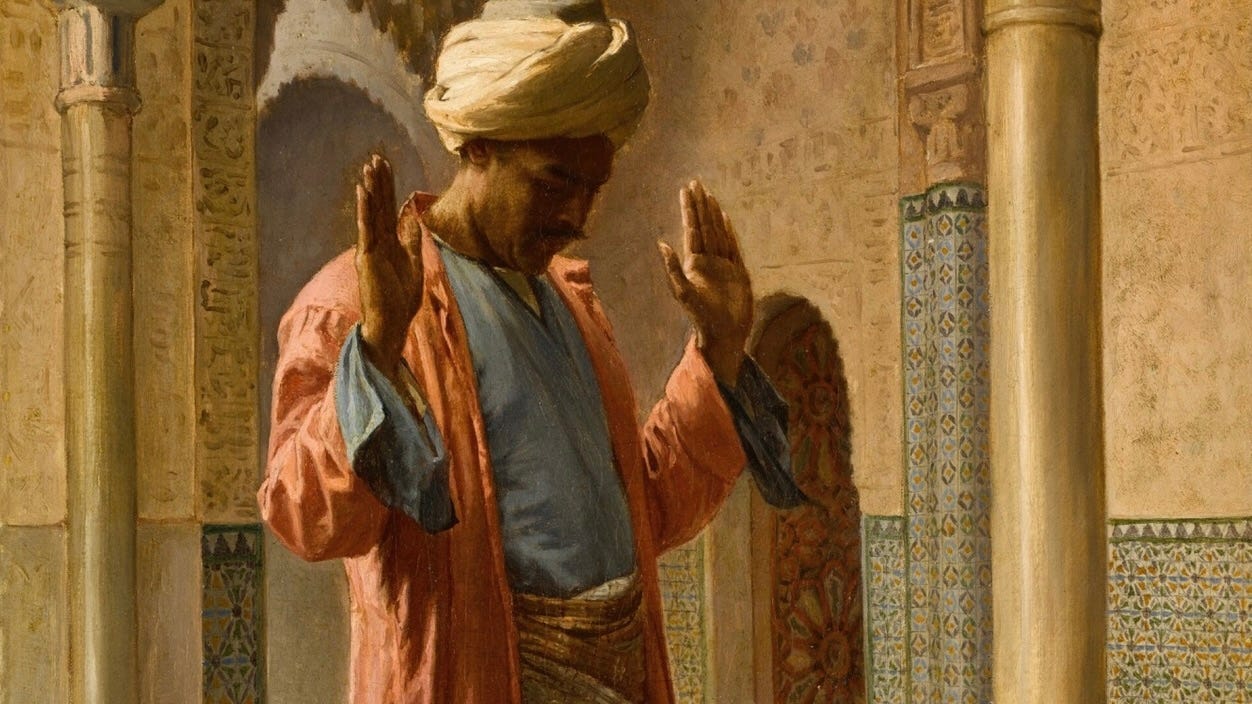
![[UNPAYWALLED] The Antidotes to Male Loneliness [UNPAYWALLED] The Antidotes to Male Loneliness](https://s3.castbox.fm/4c/c0/e8/2f3ae5ac06fac222a2f441cbb0d70936a9_scaled_v1_400.jpg)
